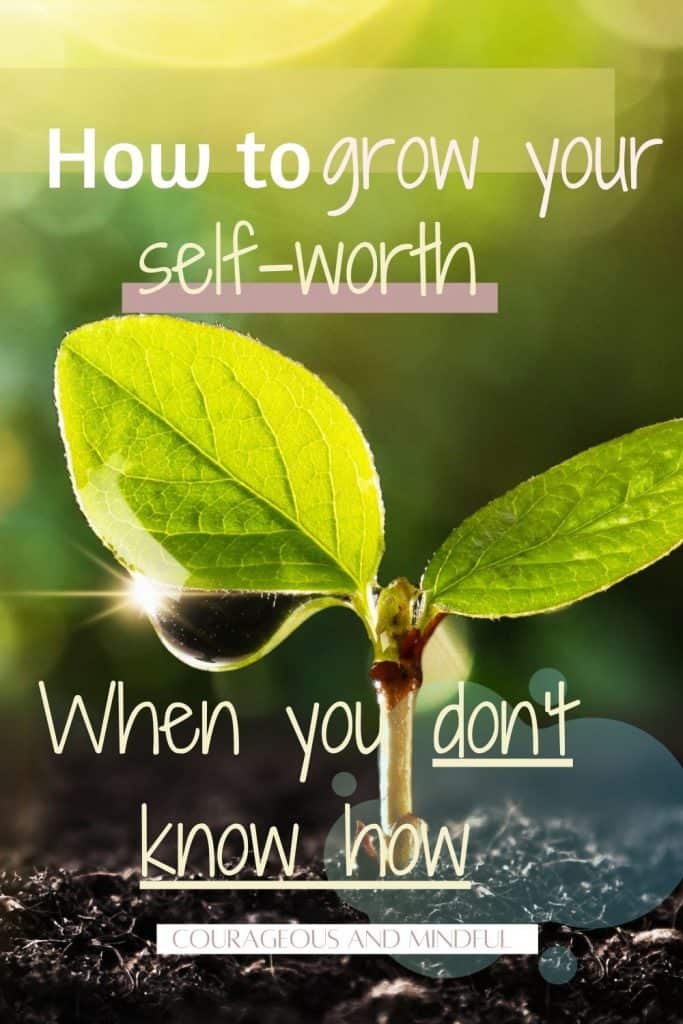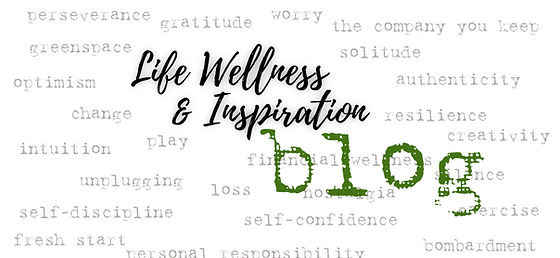In a society that often places a heavy emphasis on external validation, finding true self-worth can be a challenging endeavor. However, it is essential to cultivate a sense of self-worth that extends far beyond the opinions and judgments of others. When we rely solely on external validation, our self-esteem becomes fragile and vulnerable to the ever-changing tides of societal approval. In this article, we will explore actionable steps and mindset shifts that can help you break free from the shackles of seeking validation from others and instead foster a deep sense of worth that comes from within. Get ready to embark on a journey towards cultivating self-worth that is unshakeable and empowering.

This image is property of richwoman.co.
Understanding Self-Worth
Self-worth can be defined as the value and importance you place on yourself as an individual. It is the belief that you are deserving of love, respect, and happiness. For many people, self-worth is heavily influenced by external validation, such as the approval and acceptance from others. However, relying solely on external validation can have detrimental effects on our self-worth.
Defining self-worth
Self-worth encompasses how we perceive ourselves, our abilities, and our value in the world. It is the deep-rooted belief that we are worthy of love, respect, and happiness simply because we exist. It is important to understand that self-worth is not contingent on external factors such as achievements, appearance, or validation from others. It is an intrinsic value that every individual possesses.
The impact of external validation on self-worth
External validation refers to seeking approval, recognition, and validation from others to validate one’s self-worth. While receiving praise and validation from others can temporarily boost our self-esteem, relying solely on external validation can have negative consequences. When our self-worth is solely dependent on others’ opinions, we become vulnerable to their judgments and criticisms. This can lead to a constant need for approval and validation, creating a cycle of seeking external validation to feel worthy.
The dangers of relying solely on external validation
Relying solely on external validation can be dangerous for our self-worth because it puts our sense of self in the hands of others. This constant need for validation can leave us feeling empty and insecure, as our worth becomes contingent on external factors that we cannot always control. It can also lead to comparison and feelings of inadequacy, as we strive to meet others’ expectations rather than embracing our own unique qualities and strengths. Cultivating self-worth beyond external validation is essential for developing a healthy and resilient sense of self.
Recognizing Intrinsic Value
Recognizing our intrinsic value means acknowledging and embracing our worthiness as individuals, independent of external factors. It involves shifting our focus from seeking validation from others to valuing and accepting ourselves for who we are.
The importance of recognizing intrinsic value
Recognizing our intrinsic value is vital for cultivating self-worth because it allows us to establish a foundation of self-acceptance and self-love. When we recognize our inherent worthiness, we no longer rely on others’ opinions or achievements to feel good about ourselves. Instead, we develop a sense of inner security and confidence, knowing that our value is not determined by external factors.
Embracing individuality
Embracing our individuality is an integral part of recognizing our intrinsic value. Each of us has unique qualities, strengths, and perspectives that contribute to the tapestry of humanity. When we embrace our individuality, we celebrate our differences and recognize that our worth is not determined by how we measure up to societal standards or expectations. Instead, we value ourselves for the unique gifts and qualities we bring to the world.
Shifting focus from external to internal
Shifting our focus from external validation to internal recognition allows us to rely on our own judgment and perception of self-worth. Instead of seeking constant approval from others, we learn to validate ourselves and acknowledge our accomplishments and strengths. This shift in perspective empowers us to develop a stronger sense of self and to define our worth based on our own values and beliefs.

This image is property of images-stylist.s3-eu-west-1.amazonaws.com.
Building a Positive Self-Image
Building a positive self-image is crucial for nurturing self-worth. It involves developing self-acceptance, recognizing personal strengths, and practicing self-compassion.
Developing self-acceptance
Self-acceptance is the foundation of building a positive self-image. It means embracing all aspects of ourselves, including our flaws and imperfections, without judgment or criticism. When we accept ourselves fully, we can let go of the need for external validation and cultivate a sense of self-worth that is genuine and unwavering.
Identifying and appreciating personal strengths
Identifying and appreciating our personal strengths is a powerful tool for building a positive self-image. By recognizing our unique talents, skills, and qualities, we can amplify our sense of self-worth. Taking the time to reflect on our accomplishments, both big and small, allows us to appreciate and acknowledge the value we bring to the world.
Practicing self-compassion
Practicing self-compassion is essential for building a positive self-image and nurturing self-worth. It involves treating ourselves with kindness, understanding, and forgiveness, especially during times of self-doubt or failure. By offering ourselves the same compassion we would extend to a friend, we can create a nurturing environment for self-growth and development.
Setting Authentic Goals
Setting authentic goals is essential for aligning our actions with our true desires and values. Authentic goals are driven by intrinsic motivation rather than the need for external validation.
Understanding the difference between authentic and external goals
Authentic goals are goals that are based on our true desires and values. They reflect what truly matters to us and bring us joy and fulfillment. On the other hand, external goals are driven by the desire for approval, recognition, or societal expectations. Understanding the difference between these two types of goals is crucial for setting goals that are meaningful and in alignment with our authentic selves.
Identifying personal passions and values
To set authentic goals, it is important to identify our personal passions and values. What brings us joy and fulfillment? What matters most to us? By exploring these questions, we can uncover our authentic desires and set goals that are truly meaningful to us.
Setting realistic and meaningful goals
Setting realistic and meaningful goals is essential for nurturing self-worth. By setting goals that are challenging yet attainable, we can build confidence and self-belief in our abilities. It is important to remember that the journey towards our goals is just as important as the outcome, and that setbacks and failures are opportunities for growth and learning.

This image is property of courageousandmindful.com.
Nurturing Inner Growth
Nurturing inner growth is an ongoing process that involves personal development, learning from failures and setbacks, and cultivating a growth mindset.
Importance of personal development
Personal development is an integral part of nurturing our self-worth. Engaging in activities that promote learning, growth, and self-improvement allows us to expand our horizons and develop new skills and abilities. By investing in our personal growth, we can cultivate a sense of purpose and fulfillment.
Learning from failures and setbacks
Failures and setbacks are inevitable in life, but they can be powerful catalysts for growth and self-discovery. Rather than allowing failures to define our self-worth, we can choose to view them as opportunities for learning and resilience. By embracing failures as stepping stones towards success, we can develop a growth mindset that fosters self-worth.
Cultivating a growth mindset
Cultivating a growth mindset is essential for nurturing self-worth. A growth mindset is the belief that our abilities and intelligence can be developed through dedication and hard work. By embracing challenges, persisting in the face of obstacles, and viewing failures as opportunities for growth, we can develop a resilient and confident sense of self.
Surrounding Yourself with Supportive Relationships
Surrounding yourself with supportive relationships is crucial for fostering self-worth. Supportive relationships provide love, encouragement, and validation, helping us to build resilience and confidence.
The significance of supportive relationships
Supportive relationships play a vital role in our sense of self-worth. When we are surrounded by people who genuinely care about our well-being and support our goals and aspirations, we feel valued and validated. These relationships provide a sense of belonging and acceptance, boosting our self-esteem and self-worth.
Identifying toxic relationships and letting go
While supportive relationships are essential, it is equally important to identify and let go of toxic relationships. Toxic relationships can be detrimental to our self-worth, as they can involve negativity, manipulation, or constant criticism. By setting boundaries and prioritizing our well-being, we can cultivate a supportive network that uplifts and empowers us.
Building a supportive network
Building a supportive network involves seeking out like-minded individuals who share similar goals and values. By surrounding ourselves with people who inspire and challenge us, we can create a community that fosters growth and nurtures our self-worth. This network can provide invaluable support, encouragement, and motivation on our journey of self-discovery and personal fulfillment.

This image is property of cdn.tinybuddha.com.
Practicing Mindfulness and Self-Reflection
Practicing mindfulness and self-reflection is a powerful way to cultivate self-worth. It involves being present in the moment, accepting ourselves without judgment, and gaining insight into our thoughts and emotions.
Benefits of mindfulness and self-reflection
Mindfulness and self-reflection offer numerous benefits for our mental and emotional well-being. By practicing mindfulness, we can reduce stress and anxiety, enhance self-awareness, and improve our ability to regulate our emotions. Self-reflection allows us to gain clarity and insight into our values, beliefs, and behaviors, leading to personal growth and self-acceptance.
Incorporating mindfulness into daily life
Incorporating mindfulness into our daily lives can be as simple as taking a few moments each day to pause, breathe, and become aware of our thoughts and emotions. Engaging in activities such as meditation, journaling, or mindful movement can help us cultivate a greater sense of self-awareness, presence, and compassion towards ourselves and others.
Journaling and self-reflection practices
Journaling and self-reflection practices can deepen our understanding of ourselves and promote self-worth. By regularly journaling about our thoughts, emotions, and experiences, we can gain insights into patterns, beliefs, and behaviors that may be impacting our self-worth. Self-reflection practices such as asking ourselves meaningful questions and seeking feedback from trusted individuals can also aid in our personal growth and development.
Embracing Self-Care
Embracing self-care is essential for nurturing self-worth. Self-care involves prioritizing our physical, emotional, and mental well-being and ensuring we meet our own needs.
Understanding the importance of self-care
Self-care is essential for maintaining a healthy sense of self-worth. It involves recognizing our needs and taking deliberate actions to meet them. When we prioritize self-care, we send a message to ourselves that our well-being matters and that we deserve to be nurtured and taken care of.
Prioritizing physical and mental well-being
Prioritizing physical and mental well-being is a crucial aspect of self-care. Engaging in regular exercise, eating nourishing foods, and getting enough rest and sleep are important for our physical well-being. Similarly, taking care of our mental health by practicing stress management techniques, seeking therapy or counseling when needed, and engaging in activities that bring us joy and relaxation contribute to our overall well-being and self-worth.
Developing self-care routines
Developing self-care routines involves creating habits and rituals that nourish and support our well-being. This can include activities such as taking regular breaks, enjoying hobbies, practicing mindfulness, spending time in nature, or engaging in self-care practices such as pampering ourselves with a bath or engaging in creative outlets. By incorporating self-care into our daily routines, we can prioritize our self-worth and create a healthy and balanced lifestyle.

This image is property of static.wixstatic.com.
Challenging Negative Self-Talk
Challenging negative self-talk is crucial for nurturing self-worth. Negative self-talk involves the critical and judgmental inner dialogue that diminishes our self-esteem and self-worth. By countering negative self-talk and replacing it with self-encouragement, we can cultivate a more positive and empowering mindset.
Recognizing and countering negative self-talk
Recognizing negative self-talk is the first step towards challenging it. Paying attention to our inner dialogue and becoming aware of negative thoughts and beliefs about ourselves allows us to recognize when we are engaging in self-sabotaging patterns. Once we recognize negative self-talk, we can challenge it by replacing it with positive, affirming, and self-compassionate statements.
Replacing self-criticism with self-encouragement
Replacing self-criticism with self-encouragement is essential for nurturing self-worth. Instead of berating ourselves for perceived flaws or failures, we can cultivate self-compassion and offer ourselves kindness and understanding. By reframing our self-talk to focus on our strengths, achievements, and positive qualities, we can boost our self-esteem and cultivate a more empowering mindset.
Utilizing positive affirmations
Utilizing positive affirmations is a powerful tool for challenging negative self-talk and nurturing self-worth. Affirmations are positive statements that we can repeat to ourselves to affirm our self-worth and foster a positive mindset. By regularly affirming our value, capabilities, and worthiness, we can shift our internal dialogue and cultivate a more self-assured and confident sense of self.
Seeking Professional Help
Knowing when to seek professional help is crucial for nurturing self-worth. Sometimes, outside support and guidance may be necessary to navigate challenges and cultivate a healthy sense of self-worth.
When to seek professional help
It is important to seek professional help when our struggles with self-worth and self-esteem become overwhelming or impact our daily functioning. If negative self-talk, self-doubt, or feelings of worthlessness persist despite our efforts to cultivate self-worth, a licensed therapist or counselor can offer guidance and support. Additionally, if our struggles with self-worth are accompanied by symptoms of mental health disorders such as depression or anxiety, seeking professional help is highly recommended.
Types of professionals who can assist with self-worth
There are various professionals who can assist with self-worth and self-esteem concerns. Licensed therapists or counselors with expertise in areas such as self-esteem, confidence, and personal growth can provide guidance and tools to help cultivate self-worth. Additionally, life coaches or self-worth coaches can offer support and strategies for building a strong sense of self. It is important to find a professional who aligns with your needs and goals.
Finding the right support
Finding the right support is crucial when seeking professional help. It is important to research and consider the expertise and approach of potential therapists, coaches, or counselors. Reading reviews, seeking recommendations, and scheduling an initial consultation can help determine if the professional is a good fit for your needs. Remember, finding the right support is a personal process, and it may take time to find the right professional who can assist you on your journey of cultivating self-worth.
In conclusion, cultivating self-worth beyond external validation is a journey that involves recognizing intrinsic value, building a positive self-image, setting authentic goals, nurturing inner growth, surrounding oneself with supportive relationships, practicing mindfulness and self-reflection, embracing self-care, challenging negative self-talk, and knowing when to seek professional help. By taking intentional steps to prioritize self-worth and self-acceptance, we can unleash our potential, cultivate happiness, and live in harmony with ourselves and others. Remember, your worthiness is inherent, and you deserve to cultivate a deep sense of self-worth that is not dependent on external validation.


